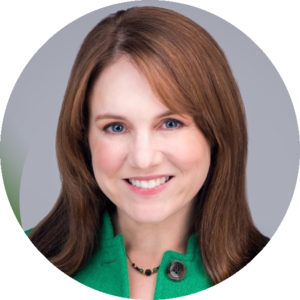[ad_1]
When InvestmetNews went looking for a new EIC, he was already there. The leadership promoted Paul Curcio, an industry veteran with a roster of top-tier publications on his resume. (Note to hiring managers: Sometimes the best person for the job is right under your nose.)
Paul’s serving as the linchpin in sweeping round of changes designed to grow the stalwart trade publication’s footprint. His team also includes well-known reporters Gregg Greenberg, Ryan Neal (who returned to the pub) and Joanne Cleaver, who became the newly created DEI Editor. Paul’s impressive background made him ideal for the task: He has held a variety of roles at high-profile brands including The Associated Press, Dow Jones and TheStreet, where he worked to develop an investigative news team. But he’s also been a university lecturer, radio host and a part-time live events producer.
I talked with Paul, who is also an avid musician and owner of an Italian Greyhound named Leo, about his views on social media, where he’s found great mentors and how that live events job helps him today.
Dawn Wotapka: Tell me about InvestmentNews. Who’s your audience?
Paul Curcio: We’re an online and print B2B magazine focused on the financial services industry. We cater to financial advisers, retirement planners and wealth managers.
Dawn: What is the biggest challenge you face as an editor?
Paul: Keeping up with ever-shifting norms. Google seems to change SEO rules at will and without warning. Once everyone on the team learns a new app or platform, it gets updated or becomes obsolete. Social media is vexing (to use) between the meltdown at Twitter and increased use of algorithms limiting what people see in their Facebook and Instagram feeds. And then there’s TikTok. A few years ago, everyone had to be on Snapchat. So, social media strategy is like building castles in the sand.
Finally, it’s frustrating when the innocent use of words in a headline or an image in a story triggers an accusation that we are socially or culturally insensitive. We aren’t; we’re the only news outlet in our space with a DEI editor. And we devote most of our awards and events to DEI and have an entire issue dedicated to women in the industry.
Dawn: What has you the most optimistic about your company’s future?
Paul: We are the leader in our space. We were first to cover the advisory industry – in 1998— and we have the best roster of talent in our B2B market, which gives us lots of street cred. We have the longest-serving journalists in our niche, with nearly 60 years of combined service among our three leading senior columnists. We don’t just cover goings-on. We put news into context and delve into what it means for our readers. That’s complemented by a robust slate of events and awards programs that set the standard for excellence in advising and investing. As a result, we have a loyal base that sustains our business and our status in the industry.
Dawn: I see that you have classic print journalism experience and you’ve also spent time at a wire, radio and trade pub. I love this variety. What’s your favorite type of journalism and why?
Paul: My favorite kind of journalism is good journalism that serves the readers’ best interests with no hidden agenda. So, for me, the medium is irrelevant; it’s the results that matter. Are you providing quality information to your readers or just pushing a narrative for clicks or to promote a political ideology? That’s not journalism — at best it’s infotainment and, at worst, propaganda.
Dawn: How did you transition between print and digital, copy editing, and a newswire role without having that particular experience?
Paul: You start gaining experience on your first day at any new job. It’s like the proverbial journey of a thousand miles: Experience comes with every step. If you apply the principles of good reporting, writing and editing, you will excel in any role in any newsroom, whether you’ve done it before or not.
Dawn: Who has mentored you over the years? What have they done or said that had lasting impact?
Paul: I consider the team at InvestmentNews to be my mentors. I had never covered financial advice before coming to IN, so every day for the past three years has been a learning experience. They are the best in the business, and I’m fortunate to share a newsroom with them. I’ve been at several high-profile news organizations, but the finest group of people I’ve had the privilege to work with is right here at IN.
Dawn: I love that you have “live events producer” experience. How does that experience help you today?
Paul: News is a lot like live events. You’re putting together a specific product for a specific audience within a specific time frame in real-time. It’s a thrill a minute. You have to be agile enough to take whatever’s thrown at you.
Dawn: If you could do something differently at one of your previous jobs, what would it be?
Paul: I’d have been more vocal about my desire to move into a management role sooner.
Dawn: What are you looking for in current hires?
Paul: In general, professionalism and accountability. That’s in short supply. More specifically, I look for good news judgment. Either you have it or you don’t (though some may disagree with me about that). It isn’t something that can be taught easily, but it can be learned or at least sharpened with time and practice. Having it is a great foundation for success in any newsroom.
Dawn: If I gave you $100 million (or more, if needed) to start a new publication, what would the business model be?
Paul: That’s a tough question because it speaks to the existential problem facing the news business: profitability. The audience for news seems to be shrinking. Meanwhile, we’ve been applying 20th-century business solutions to 21st-century problems. The industry lacks innovation and clings to outdated notions of how people consume news and, more importantly, how much it’s worth to them. So, the cost to start a new publication is critical, as the return on investment is limited and the risk is high.
Dawn: That’s a fascinating angle.
Paul: A $100 million startup is going to have very high expectations. I’d avoid raising it from private equity, as they have a narrow investment horizon and no patience. Instead look for long-term investors who see the big picture and can weather the inevitable rough times while you build a reputation, an audience, and a recognizable and trusted brand. Emphasize and reward solid journalism instead of promoting clickbait, fake news and stealth advertising dressed up as news. People are starved for quality and always happy to embrace a new voice – if it’s genuine. I guess my business model would be: If you build it right, they will come.
 Dawn Wotapka is a former Wall Street Journal reporter who simply loves to read and write. She lives in Atlanta with her husband and two children. She is a slow runner and an avid Peloton user. To submit tips for her Media Movers column, you can contact her at dwotapka@gmail.com. Be sure to connect with Dawn on LinkedIn.
Dawn Wotapka is a former Wall Street Journal reporter who simply loves to read and write. She lives in Atlanta with her husband and two children. She is a slow runner and an avid Peloton user. To submit tips for her Media Movers column, you can contact her at dwotapka@gmail.com. Be sure to connect with Dawn on LinkedIn.
[ad_2]
Image and article originally from talkingbiznews.com. Read the original article here.

